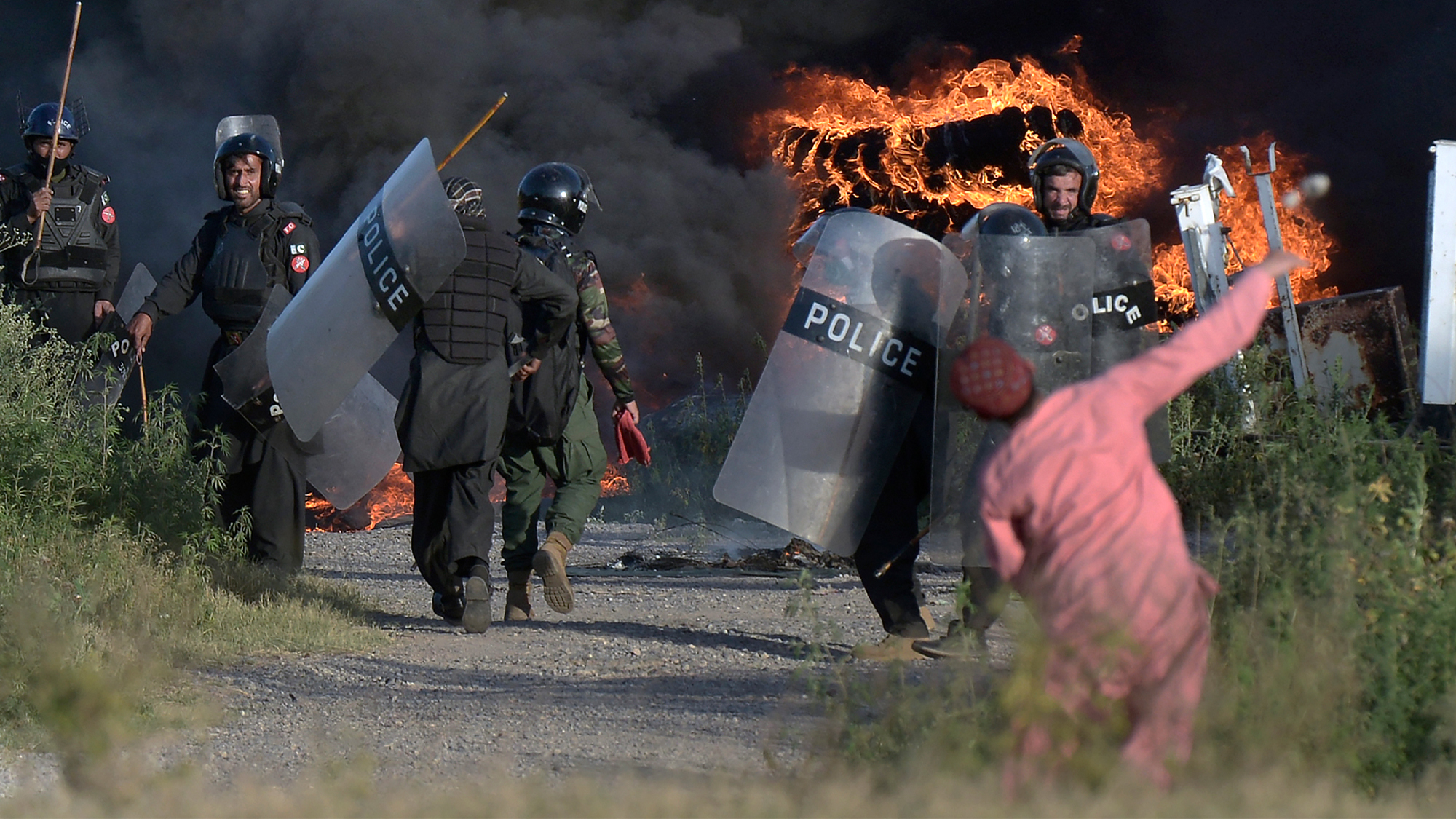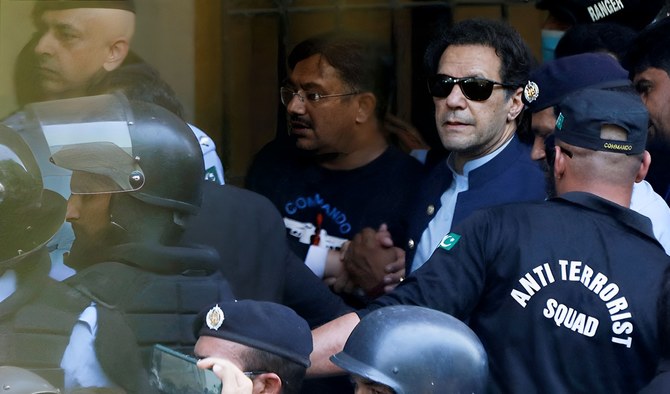ISLAMABAD: An anti-terrorism court (ATC) in the city of Rawalpindi on Monday accepted a request by the military to hand over 8 suspects to be tried under the Pakistan Army Act on charges of attacking armed forces' installations earlier this month, as former Prime Minister Imran Khan was summoned by police to be join the investigation today, Tuesday.
Authorities began a crackdown on close associates and supporters of Khan after his followers attacked security forces and torched government and military properties, including the home of the Corps Commander in Lahore, following the popular opposition politician’s arrest on corruption charges on May 9.
Troops were deployed to contain the violence, which subsided only after Khan was released on bail on May 12. Thousands of supporters of the popular opposition politician have since been arrested, including the most senior leaders of Khan's Pakistan Tehreek-e-Insaf (PTI) party. Many top aides have also since announced leaving the party.
A notice from the office of Lahore’s deputy inspector general (DIG) of police (investigation) said the PTI chief was “required to join the investigation proceedings,” summoning him to the DIG’s office at 4pm.
Meanwhile, Judge Hamid Hussain at the Rawalpindi ATC issued the order to the Superintendent of Adiala Jail to hand over eight suspects to the military for trials under the Army Act. A total of 105 accused have been imprisoned in different cases at the jail in connection with the May 9 violence.
The commanding officer told the court the suspects had been found guilty under sections 9, 3, 7 and 9 of the Official Secrets Act, which relate to incitement to violence, spying and interfering with the work of police or army officers respectively. The suspects would now be tried under the Army Act 1952.
Last week, an anti-terrorism court in Lahore approved a request by the military to hand over 16 suspects to be tried under the Pakistan Army Act. Separately, Interior Minister Rana Sanaullah told reporters on Friday 33 pro-Khan protesters had been handed over to the army to face trial in military courts on charges of attacking army properties.
"The accused who are being handed over to the military are those who trespassed and entered very sensitive defence installations," Sanaullah told a press conference in Islamabad.
He said only those involved in breaching out-of-bounds areas would face trial under army laws, suggesting there would not be mass trials in military courts.
But in response to a question, he also suggested that Khan could also be tried in a military court, saying: "as far as my own assessment and the evidence we have... this man is the architect of all this mess and planning, so yes he comes under this category."

Police officers throw stones towards supporters of Pakistan's former Prime Minister Imran Khan during clashes, in Islamabad, Pakistan, on May 10, 2023. (AP)
The Pakistan Army Act of 1952 established military courts primarily to try members of the military or enemies of the state. Civilians accused of offenses such as waging war against the armed forces or law enforcement agencies, or attacking military installations or inciting mutiny, can be tried by military courts under a federal government order.
Military courts operate under a separate system from the civilian legal system and are run by military officers. The judges are also military personnel and cases are tried at military installations. Trials are closed to outsiders, and no media presence is allowed.
The courts have faced widespread criticism from within Pakistan and rights organisations globally because of their secretive nature and their existence alongside a functioning civilian legal system.
The army has said in the past trials held at military courts are fair and guarantee human and legal rights.
Khan's PTI last week filed a petition before the country’s top court, calling on it to intervene against the use of military laws to try suspects accused of attacking army installations during the recent protests.
"On the pretext of arson on 9th may (condemned by the entire PTI leadership) the state is trying to dismantle the party ... and trying PTI members in military courts." Khan wrote on Twitter. "This is not dismantling PTI but our democracy i.e. our freedom."
















